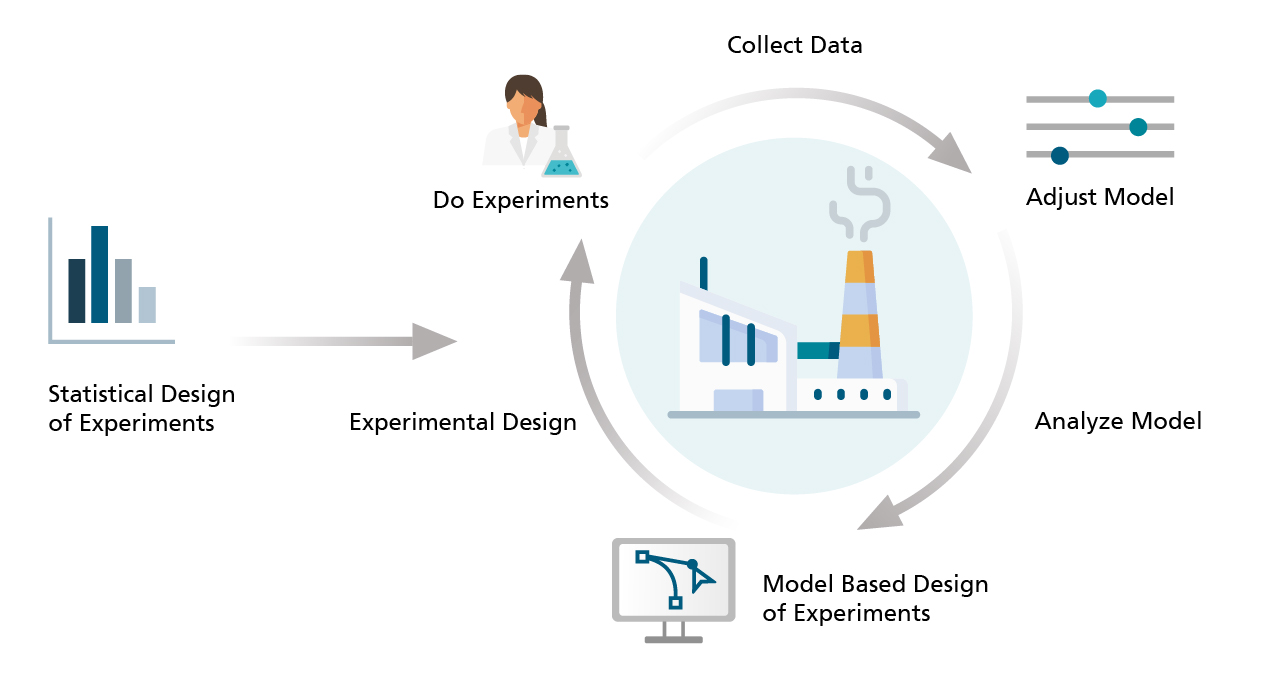Simulation-based software tools are becoming an increasingly important part of modern industrial decision making. Simulations might be used in tasks such as feasibility analysis, process plant design or safety and risk analysis. Thus, it is of vital importance that simulations results are as reliable as possible. While simulation tools typically rely on underlying models, it often is necessary to calibrate some of these models to their real counterparts, which is why experimental data is to be obtained.
Laboratory experiments and pilot plants are expensive and time consuming. Thus, experimental design is an important part of experimental data acquisition. The goal is to conduct only those experiments that affect model calibration most, leading to high model reliability at a small number of experiments. This is why we are developing tools that support the selection of such optimal experimental designs. Typically, research, development, and testing is conducted in industrial and governmental research projects.

